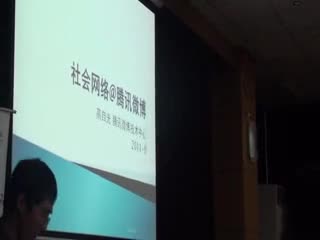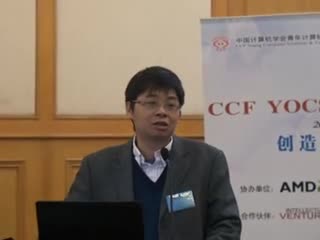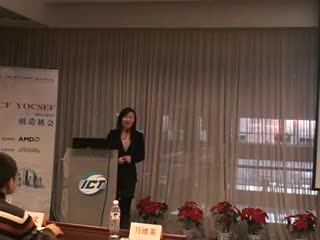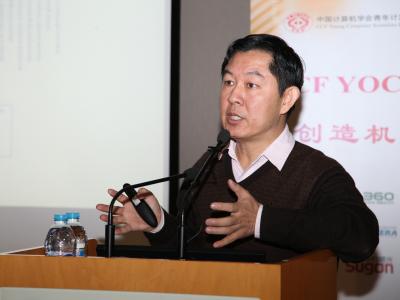中国计算机学会青年计算机科技论坛
CCF Young Computer Scientists & Engineers Forum
CCF YOCSEF 哈尔滨
于2016 年12 月21 日 (星期三) 10:00 - 11:30
在哈尔滨工业大学新技术楼618 室举行
深度学习与自然语言处理
敬请光临
议程
9:50 签到
10:00 报告会开始
执行主席:车万翔 YOCSEF 哈尔滨主席,哈尔滨工业大学副教授
特邀讲者:Hui Jiang (江辉) Professor of Department of EESC, York University, Toronto, Canada
演讲题目:A New General Deep Learning Approach for Various Natural Language Processing Problems
报告简介
The word embedding techniques to represent each discrete word as a dense vector in continuous high-dimension space have achieved huge success in many natural language processing (NLP) tasks. However, most NLP tasks rely on modeling a variable-length sequence of words not just each isolated word. The conventional approach is to formulate these NLP tasks as sequence labelling problems and use conditional random fields (CRF), convolutional neural networks (CNNs) and recurrent neural networks (RNNs) to solve them. In this talk, I will introduce a new, general deep learning approach for almost all NLP tasks, not just limited to sequence labelling problems. The proposed method is built upon a simple but theoretically proved lossless encoding method, named fixed-size ordinally-forgetting encoding (FOFE), which can almost uniquely encode any variable-length sequence of words into a fixed-size representation. Next, a simple feedforward neural network is used as a universal function approximator to map the fixed-size FOFE codes to different targets in various NLP tasks. This framework is appealing since it is elegant and well founded in theory and meanwhile fairly easy and fast to train in practice. Moreover, it is totally data-driven without any feature engineering, and equally applicable to a wide range of NLP tasks. In this talk, I will introduce our recent work to apply this approach to several important NLP tasks, including word embedding, language modelling, named entity recognition (NER) and mention detection in recent KBP EDL contests, and Pronoun Disambiguation Problems (PDP) in Winograd Schema Challenge. Experimental results have shown that the proposed approach is very effective in all of these examined NLP tasks comparing with other more sophisticated conventional methods, such as CNNs and RNNs. As our future work, we will continue to explore this approach to solve more NLP problems, such as entity linking, semantic parsing, factoid Q/A and so on.
主讲嘉宾介绍
Hui Jiang received the B.Eng. and M.Eng. degrees from University of Science and Technology of China (USTC), China and the Ph.D. degree from the University of Tokyo, Japan, all in electrical engineering. Since 2002, he has been working at Department of Electrical Engineering and Computer Science, York University, Toronto, Canada, initially as an assistant professor, then an associate professor and currently a full professor. His current research interests include machine learning, especially deep learning or neural networks, with its applications to speech and audio processing, natural language processing and computer vision. He served as an associate editor for IEEE Trans. on Audio, Speech and Language Processing (T-ASLP) between 2009-2013, and some technical committees for several international conferences. He has recently received the 2016 IEEE SPS Best Paper Award for the pioneer work in applying convolutional neural networks to speech recognition.
活动地址:哈尔滨工业大学一校区院内新技术楼618 室














